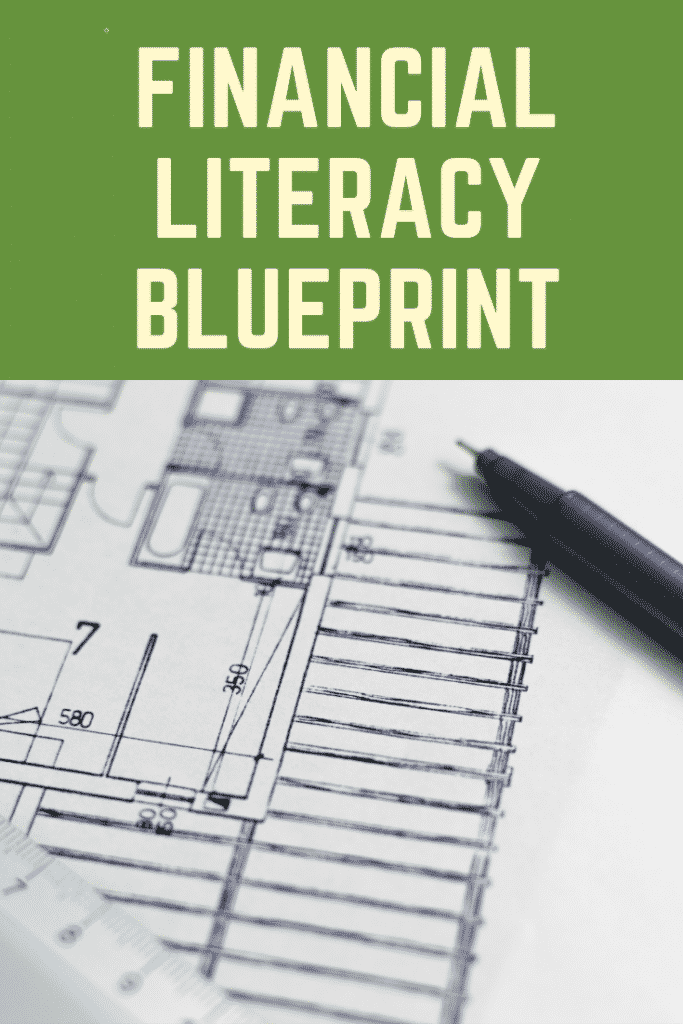It’s no secret that money plays a role in all of our lives daily, but not always in obvious ways. From the clothes you wear to the type of work you do, even down to the brand of dish soap you use, money guides countless decisions that shape our lives. The omnipresence of money sets the stage for the vital importance of financial literacy.
Financial literacy — familiarity with fundamental money topics — is precisely the knowledge base we need to navigate this money-driven world. Unfortunately, this critical skill set is in short supply. The 2014 S&P Global Financial Literacy Survey found financial literacy in the US was only 57%. Nearly half of Americans could not correctly answer four simple questions on financial decision-making.
Whether we like it or not, money influences our daily decisions. We can approach those decisions as informed consumers by equipping ourselves with the proper knowledge.
What Is Financial Literacy?
Financial literacy encompasses a range of money management knowledge and skills that help people manage their money. Budgeting, debt, investing, credit, and more all fall under this umbrella.
Financially literate people understand the core mechanics of their finances and can use that understanding to make informed money decisions. In addition, when faced with new or unfamiliar money concepts or terminology, money-smart people can apply their existing knowledge to adapt.
In an age of financial scams, credit card fraud, identity theft, and flimflam artists of all sorts, the ability to manage money wisely is more than a luxury; it’s a necessity.
Benefits of Financial Literacy
There is no single purpose of financial literacy. In truth, there are many. Studies have shown that financial literacy has a clear positive impact on household wealth.
It’s more than the strictly monetary benefits, though. Good financial skills also have personal benefits connected to your goals, self-image, and even your emotional well-being.
A Strong Foundation
Whatever your long-term financial goals may be, success starts with financial literacy. So whether your main focus is becoming debt-free, building toward financial freedom, or saving for a leisurely retirement, you will want to approach it with a firm grasp of the fundamentals.
Financial education is an ongoing process. There will likely always be something new to learn. Basic literacy doesn’t cover everything, but it gives you the most important thing: a foundation. With that foundation, you can continue to build deeper understanding, acquire new tactics, and fine-tune your approach to your personal financial goals.
Self-Reliance and Independence
Approaching something in your life from a place of understanding makes you less reliant on outside sources of information and support. That is just as true with financial literacy as with home maintenance or auto repairs.
Having fundamental expertise allows you to do more for yourself and to act with confidence. Starting with some working background knowledge empowers you to be a more informed consumer in instances where you need to pay for an outside advisor or service.
Financial Wellness
According to a 2018 report by FINRA, more than half of Americans (53%) experience financial anxiety. On a more encouraging note, a more recent 2021 follow-up study found a direct link between financial literacy and reduced financial stress.
A commitment to financial wellness starts with improving financial literacy. A good grasp of your finances reduces the unknowns that cause stress and gives you the tools you need to respond when issues arise.
Learning Financial Literacy
The only cure for financial illiteracy is education.
Some people are fortunate enough to receive financial literacy training from their parents or through programs as high school students. If that’s you, great. For the rest of us, financial knowledge relies heavily on our self-education skills.
The good news is that there are countless ways to access valuable financial information from your home. Here are a few great places to start:
- Reputable online blogs and websites offering financial education
- Personal finance podcasts
- Time-tested books on managing money
There’s no one right way to pursue your financial literacy education. Whatever your preferred learning style, there is something out there to meet your needs. Not all financial advice is good for you, so stick to sources you can trust.
Financial Literacy Basics: Income
Robust financial health starts with your income. Everything else you do with your money — like saving for the future, taking on or paying off debt, and building up your investments — flows from your primary income, at least initially. That’s why understanding how to manage your income is the first step to a healthy financial life.
Budgeting
It’s no secret that a budget is the central point of many households’ financial planning. Budgets are essential to healthy finances. No matter how you choose to create and track your budget, a baseline familiarity with budgeting concepts is a crucial building block of financial literacy. These include:
- Tracking monthly income and living expenses
- Planning for future goals and sizable expenses
- Adapting to unexpected changes to your budget
- Identifying problematic spending habits
A growing number of experts suggest that you don’t necessarily need a strict, written monthly budget to succeed with money. What they all still agree on, however, is that keeping an eye on your overall spending and having a savings plan is essential to financial success.
Taxes
Taxes in the US can quickly become a complex and daunting subject. Don’t worry, though — you don’t necessarily need a deep understanding of every form, code, and calculation.
However, taxes do have a massive impact on both your income and investment returns, two of the most significant drivers of wealth creation. Because of that, it’s worth building a basic understanding of how taxes work on different types of income and investments.
Passive Income
Passive income refers to any money you earn from sources that don’t require much (or any) continued input from you. Some of the most popular sources of passive income include:
- Sales of digital products
- Advertising revenue from a website or blog
- Dividends or other investment-based income
Passive income typically requires a significant input of either time or money upfront. However, it will continue to supplement (or even replace) your regular paycheck over time. Building multiple streams of income is a great way to increase the amount of your income overall. Over time, this can be a massive driver of wealth-building.
Financial Literacy Basics: Saving
Saving is how you take your income and convert it into something that fuels your financial future. A considerable portion of your financial capability stems from this one point. That’s why the skills, knowledge, and discipline of effectively saving money are essential to almost any money goal.
Banking Essentials
Your bank accounts are likely to be one of the most active parts of your financial ecosystem. Paychecks come in, bills and expenses go out, investments and transfers pass through.
To get off on the right foot with these crucial accounts, seek an understanding of the following essentials:
- The difference between a checking account, savings account, and a CD
- How interest rates and APY (Annual Percentage Yield) work
- The benefits of online-only versus brick-and-mortar banks
- How to search for the best interest rates
Your bank account is something you’re likely to interact with often when dealing with your finances. By building up your banking knowledge, you’ll be able to make better decisions.
Emergency Funds
More than half of Americans do not have the savings necessary to cover even a minor money emergency. A fully stocked emergency fund can protect your finances from countless upsets, such as:
- Major car repairs (or replacement)
- Unemployment, disability, and other losses of income
- Large medical expenses
An emergency fund gives you the financial security to avoid going into debt in any of these scenarios. On top of that, it offers tremendous peace of mind.
An ideal emergency fund is a savings account with enough money to cover three to six months’ worth of expenses. Though if you’re just getting started, even $1,000 in an account reserved for emergencies can make a world of difference.
Compound Interest
Arguably one of the most important reasons to save money is its power over time. When you put your money into a productive asset, either earning interest in a bank account or principal growth in an investment, it has ongoing benefits.
When you convert your income into savings and assets, they continue to earn money for you as long as they stay there. On top of that, the cash those assets make will continue to make you even more money. That’s the power of compounding. The effect starts small and accelerates with each passing month and year.
Savings Rates
Your savings rate is a simple financial metric that helps gauge your progress on your money goals. You can calculate it by taking the amount of money you saved (or invested) over a certain period and dividing it by your total income during that same time.
For instance, if you made $1,000 in income one month and saved $100, your savings rate would be 10%.
Opinions on ideal savings rates vary, but one number that financial experts often recommend is saving 20% of your income each month.
Financial Literacy Basics: Debt
Whatever your personal beliefs around debt may be, it’s hard to deny that debt management plays a significant role in personal finance. From selecting repayment plans to keeping up with student loan debt to understanding credit reports, debt affects us in many ways. For that reason, becoming familiar with how debt works is another critical component of financial literacy.
Interest and Fees
Every debt has its own unique set of terms and conditions. Understanding how to parse essential information from these terms will help you evaluate offers and protect yourself from precarious debt arrangements.
The interest rate you would pay is one of these. Fees are another. What are the penalties if you make a late payment? Are there penalties for making early payments?
Paying attention to what you borrow can save you a great deal of money down the road. Therefore, with debt (as with all things), you can save yourself a lot of grief by paying attention to what you agree to today.
The Good Debt/Bad Debt Spectrum
Personal finance advice typically describes two classes of debt: good debt and bad debt.
Good debt tends to have relatively reasonable terms, and it often helps you build wealth in the long run. Mortgages and student loans are two common examples. On the other hand, bad debt tends to have more aggressive and expensive terms, and it doesn’t offer as much lasting value—for example, high-interest credit cards and payday loans.
Some experts argue that there is no such thing as good debt, but one thing is clear, and it’s that some debts are more expensive and risky than others. No matter what your stance on good debt and bad debt, it’s crucial to be able to identify (and protect yourself from) the worst debts.
Credit Cards
A credit card can be a great friend or a terrible enemy.
Credit card debt is widely considered an unproductive liability. In other words, it’s usually best to avoid. With that said, using a credit card is not the same thing as carrying credit card debt.
Many credit cards offer reward points, discounts with certain businesses, and other benefits. When you use a card responsibly, pay it off entirely every month, and don’t keep a running balance, these rewards can be a nice little boost to your income.
Credit cards come down to a matter of personal preference. Financial literacy gives you the information you need to decide what is best for you.
Credit Scores
A credit score is a metric designed to rate your overall financial stability and creditworthiness. It is a combination of several factors, mainly relating to your history with credit and debt.
The intended purpose of credit scores was to streamline the process of underwriting loans and other types of debt. Since then, they have greatly expanded their scope. Institutions now use them for various other considerations as well. Good credit could even give you a leg up on housing and job applications.
In addition to your credit score, your underlying credit report can also help you manage your money decisions and monitor your credit for things like identity theft.
Numerous services are available to help you understand, monitor, and improve your credit. Generally speaking, though, if you keep your debt relatively low, pay all your bills, and build a healthy financial life, your credit score will be good.
Financial Literacy Basics: Investing
Different investing goals will often lead to different approaches. Someone saving for retirement may build a portfolio differently than someone planning to use their investments to pay for college. Someone who is pursuing homeownership may use a different strategy still. In any case, familiarity with the fundamentals will be a significant help along the way.
Types of Investment Accounts
Choosing the right brokerage account plays a significant role in successful investing. There are many types of investment accounts, and each has its advantages and trade-offs.
Some specialized accounts, such as IRAs, 401(k)s, and 529 plans, offer unique tax benefits and other advantages.
These accounts serve a specific goal and come with certain restrictions. For instance, a 401(k) is an excellent tool for retirement planning but comes with heavy penalties for taking your money out too early. The same is true for an IRA.
Standard taxable brokerage accounts are another option always available to you. While these don’t have any unique tax advantages over other accounts, anyone can open one. They also tend to offer greater flexibility.
Depending on your specific financial goal (or goals), identify your options so you can select something that fits your situation.
Asset Types
Background knowledge of some of the core asset types is critical to becoming a financially literate investor. In reality, there is a huge variety of investments, vehicles, and instruments available. For a beginner, it’s best to focus on just a few of the most tested and widely used:
- Stocks
- Bonds
- Mutual funds, index funds, and ETFs
- Real estate
- Commodities
Not every savvy investor necessarily needs to be a master in all of these things. It is best to have some background knowledge on all of them. For each of the asset types listed above, you should be able to answer the following questions:
- How does it grow in value or provide income?
- What are the risks associated with it?
- Why do experts recommend it?
- Why do experts advise against it?
When you have this kind of familiarity with the options available to you, you can make well-informed choices about the types of assets you want to hold in your investment portfolio.
Fundamentals of Investing Strategy
As a microcosm of investing as a whole, investing strategy is a topic that one could spend a lifetime studying. When it comes to financial literacy, though, all you need is the basics.
Try not to get lost in complex tactics and advanced strategies if you’re new to them. Instead, focus on learning some of the core concepts that can help any investor succeed:
- Determining risk (and risk tolerance)
- Diversification
- Dollar-cost-averaging
- How to build a simple portfolio
Start small, research until you have what you need to take the first steps, and then go from there, adding new concepts and terminology as you go.
Starting Your Financial Literacy Journey
Whether it’s investing, debt, or any other aspect of financial literacy, don’t put too much pressure on yourself to master everything right away. Financial literacy aims to become more comfortable and confident in your understanding of fundamental personal finance concepts.
Even as a beginner, improving financial literacy can help you make informed decisions and feel more confident in your financial habits.
Start simple, keep asking questions and learning, and you’ll do great.
This article originally appeared on Wealth of Geeks.
Sam is the founder of the personal finance and self-improvement blog Smarter and Harder. His mission is to start exciting new conversations that empower people to improve their work, lives, and money, and hopefully have a fantastic time doing it. In all things, he strives to lead with positivity, understanding, and more than a bit of enthusiasm.


